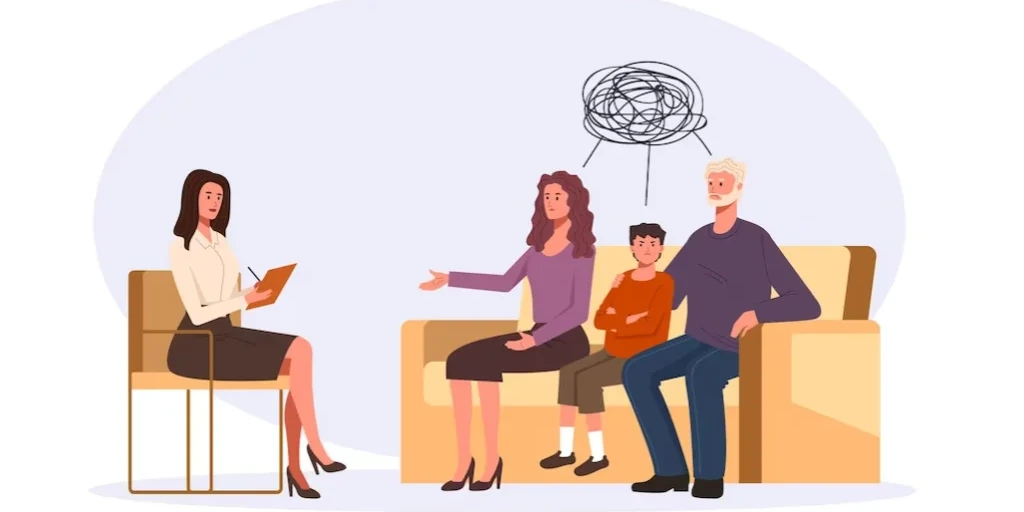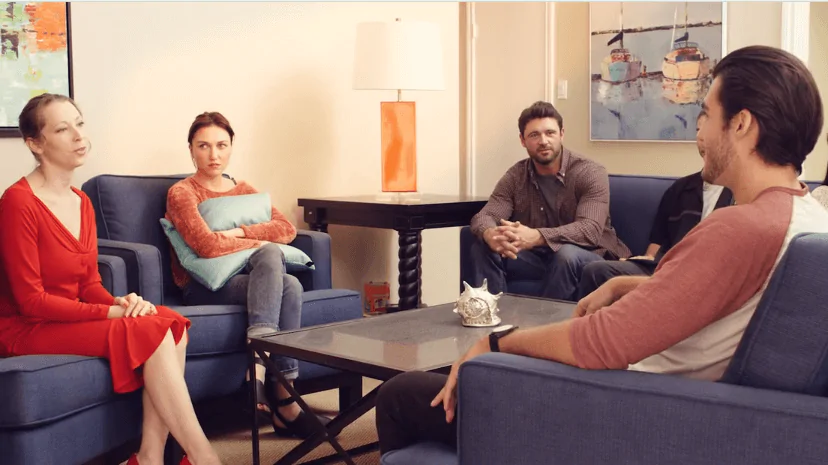24/7 Helpline:
(866) 899-221924/7 Helpline:
(866) 899-2219
Learn more about PTSD Treatment centers in West Blocton

Other Insurance Options

UnitedHealth Group

EmblemHealth

Kaiser Permanente

United Health Care

Access to Recovery (ATR) Voucher

Coventry Health Care

Medical Mutual of Ohio

Providence

Optima

Health Partners

Regence

American Behavioral

Ambetter

Optum

BlueShield

Health Choice

MVP Healthcare

WellPoint

Group Health Incorporated

Ceridian










Brand New Start – Woodstock Treatment Center
Brand New Start–Woodstock Treatment Center is a drug and alcohol rehab for adults in Woodstock, Geor...

Alano Club
Alano Club is a non-profit rehab located in Woodstock, Illinois. Alano Club specializes in the treat...

Rosecrance Woodstock Recovery Home
Rosecrance is a private not-for-profit organization offering behavioral health services for children...

Direct Counseling
Direct Counseling is an outpatient rehab located in Woodstock, IL. Direct Counseling specializes in ...

Spurwink Services – Outpatient and Community Services
Spurwink Services – Outpatient and Community Services is a private rehab located in Randolph, Maine....

Bridges Behavioral Health and Wellness
Bridges Behavioral Health and Wellness is a private rehab located in Centreville, Maryland. Bridges ...

CBH Centreville: Queen Anne’s County
CBH Centreville: Queen Anne’s County is a public rehab located in Centreville, Maryland. CBH Centrev...

New Life Counseling and Wellness Center
New Life Counseling and Wellness Center is a private rehab located in Randolph, Massachusetts. New L...

TMS Center at Southeastern Psychiatric
TMS Center at Southeastern Psychiatric is a private rehab located in Randolph, Massachusetts. TMS Ce...

Queen Anne’s County Department of Health – Addictions Treatment and Prevention Services
Queen Anne's County Department of Health - Addictions Treatment and Prevention Services offers outpa...

Community Mental Health and Substance Abuse Services of Saint Joseph County
Community Mental Health and Substance Abuse Services of Saint Joseph County is a public rehab locate...

New Life Treatment
New Life Treatment offers inpatient and outpatient treatment for men and women with alcohol and/or s...

Moving Mountains Recovery
Moving Mountains Recovery is a public rehab located in Randolph, New Jersey. Moving Mountains Recove...

Northwestern Community Services
Northwestern Community Services is an outpatient counseling clinic that offers treatment for patient...

Valley Behavioral Health
Valley Behavioral Health is a private rehab located in Woodstock, Virginia. Valley Behavioral Health...

Spero Health – Woodstock
Spero Health – Woodstock is a private rehab located in Woodstock, Virginia. Spero Health – Woodstock...


























Indian Rivers Mental Health Center
Indian Rivers Mental Health Center offers comprehensive psychiatric care and addiction recovery serv...

Focus Counseling and Training
Focus Counseling and Training is a private rehab located in Woodstock, Georgia. Focus Counseling and...

Family Alliance Counseling
Family Alliance Counseling is a private rehab located in Woodstock, Illinois. Family Alliance Counse...

Thresholds
Thresholds is a private rehab located in Woodstock, Illinois. Thresholds specializes in the treatmen...

Northwest Community Counseling
Northwest Community Counseling is a private rehab located in Woodstock, Illinois. Northwest Communit...

Centegra Behavioral Health Outpatient
Centegra Behavioral Health Outpatient helps patients struggling with emotional or mental health prob...

Corsica River Mental Health Services – CRMHS
Corsica River is a non-profit mental health and substance abuse clinic providing treatment to all mi...

Community Behavioral Health
Community Behavioral Health is a private rehab located in Centreville, Maryland. Community Behaviora...

Certified Counseling Services
Certified Counseling Services is a private rehab located in Centreville, Maryland. Certified Counsel...

AA – Alcoholics Anonymous
AA – Alcoholics Anonymous is a non-profit rehab located in Centreville, Michigan. AA – Alcoholics An...

AA – Alcoholics Anonymous
AA – Alcoholics Anonymous is a non-profit rehab located in Woodstock, New York. AA – Alcoholics Anon...

Bear River Mental Health Services – Rich County
Bear River Mental Health Services – Rich County is a private rehab located in Randolph, Utah. Bear R...



















































































